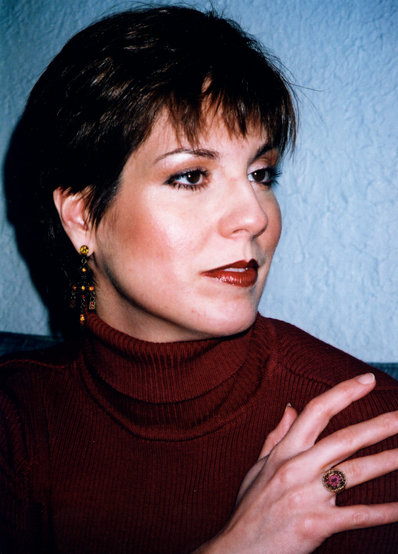When I’m Stuck in My Thoughts, I’m Tied Up in Knots!
- Irene Feher

- Mar 15, 2024
- 5 min read
…and don’t even realize it!
The Mind-Body-Heart Connection
Have you ever observed how you are feeling in your body when you sing and/or play? Some of my students are surprised by the level of tension that they carry in their body, and some who are aware of it are somewhat embarrassed.
I tell them that I totally get it!
Muscle tension and holding patterns in the physical body are a manifestation of thoughts, expectations, self-judgment, and emotions such as worry or fear.

My journey of Mind-Body-Heart Connection
As a classically trained singer with low vision, overcoming tension, awkwardness and stiffness was one of the major challenges for me in a world that reveres beauty, balance, poise and grace. When I started my formal music education, I gradually went from being a free-spirited rock singer to a scared-stiff perfectionist.
Relax into Your Beauty!
When I first heard this statement at an Art of Improvisation workshop (Music for People) - the shell of perfectionism I built up began to break! I started to reconnect with my lost self, and singing felt easier.
I’ve lived my whole life with low vision, and it was only when I studied classical voice performance at the post secondary level that I gradually became aware of my deficits in visual-motor integration. Visual motor integration encompasses many underlying skills such as perception, motor control, and eye-hand coordination. These are skills that we start developing in infancy. I had great difficulty playing a lot of children’s games, and I often preferred to retreat into my own imagination where I could conjure up amazing stories and be whoever I wanted. I put on concerts and created theatrical and musical games for those friends who wanted to join me. Fast forward to my twenties and I was playing out different characters singing in cover bands.
My classical performance teachers recognized my innate musicality, and my ability to embody a character and meld with a song. They also helped me develop better control of my classical vocal technique, postural alignment, physical movement, facial expression and body language. I was told these refinements strengthened my stage presence. It’s not surprising that I became somewhat self-conscious and was not always comfortable in my own skin. I also worked with an Alexander Technique teacher, then a Feldenkrais teacher, and then turned to yoga and Qi Gong to continue to develop flexibility and self-awareness. Through study of somatic education and body mapping, I am fascinated by the inextricable connection of the body, mind and heart. In other words how our thoughts and feelings affect every cell of our body.
Somatic education is a term created by the philosopher Thomas Hanna (1928-1990) to describe methods of sensory-motor education with the aim of improving bodily function by increasing awareness of motor control and sensation, thus changing learned and possibly rigid or inefficient muscular patterns.
But what about the heart?
Feelings of self-consciousness and shame can interfere with motor-sensory development.
1- The Little Actor 2- Irene The Dreamer, 1992 3- Irene in play 1993 4- Developing Classical Singer
5- Dr Irene, The Classical Singer
All the teaching, study and practice helped me a great deal but I still lived with tension and chronic pain. My road to physical freedom opened when I started improvising. I think a lot about how improvisation completed the triangle connecting my body and mind to my heart. I got to discover my musical self. I could learn at my own pace and actually sing when I felt ready to sing. Everything felt and sounded better when I took more time to be sure I really knew what I wanted to sing. In short, I could sing at MY OWN PACE! This amazed me because I could sing with more ease and flexibility than ever before. I could try things, I could be myself, and I felt accepted by the musicians I improvised with. Instead of tryingI was allowed to play, and what emerged felt like a part of me that was locked away for many years: that child who could venture into her imagination, who could make up amazing stories and be whoever she wanted.

In my personal vocal practice, I always begin in silence. I close my eyes and check in with where I am at. I will follow what my body needs through stretching, breathing, grounding and/or gentle self massage on areas of tension such as the jaw, neck and shoulders. I often start singing warm ups with improvisation. I also drop into a state of awareness: Are my toes curled up and clenched? Is my back stiff? Are my fingers stiff? If I am tense, I improvise on my state of being tense - more often than not, I am able to let go and drop into my beauty, I reawaken my sense of inner grace.
… and there are times I don’t drop into my beauty, and I am totally OK with that! Enjoy the process - be curious!
When I teach singers who appear stiff and nervous, I remember how it felt inside when I tried so hard to be good, to sound good, to be the best I could be. It felt like an uphill battle. That battle was just as hard if not worse when I TRIED TO RELAX. Isn’t that an interesting statement? I invite my students to improvise with me - I will start with call and response. I sing one note over a simple piano accompaniment of open fifths, and invite them to sing their own unique note. We continue back and forth in conversation. I ask: how much can you do with one note? I demonstrate, then invite the student to try the same. One note becomes two notes, and eventually the student takes over and sings along. Something amazing happens - the student becomes less rigid, and so does the singing…
Try this at the piano: Play a repeated descending scale pattern in the left hand. Sing one note and hold it over the descending scale, how much can you do with that one note? Sing another long note, how much can you say with that note?
Try this on the guitar: play a repeating chord progression of two, three or four chords (ex. C Am F G). Sing one note and hold it over the descending scale, how much can you say with that one note? Sing another long note, how much can you do with that note?
Try this: Choose a piece of music you love and move to it - notice how you feel. Enjoy being in your body.













